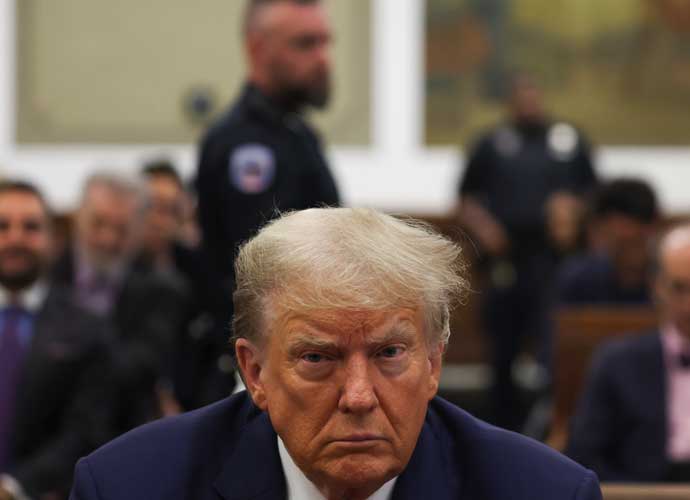Trump Asks Judge To Dismiss Criminal Charges In Classified Documents Case
Late Thursday night, former President Donald Trump’s legal team filed motions with the Florida court overseeing the federal case in which Trump is charged with mishandling classified documents and obstructing an investigation, that claim grounds for dismissal.
The case centers around charges that Trump removed classified documents from the White House and stored them at his Mar-A-Lago club. Documents included classified descriptions of U.S. and foreign allies’ defenses and weapons capabilities, information on the U.S.’s nuclear arsenal, soft spots in U.S. defenses and potential retaliation plans.
Prosecutors also allege Trump attempted to conceal the documents and destroy evidence of improper handling upon receiving a grand jury subpoena requiring their return.
Trump’s counsel has filed four motions to dismiss with Judge Aileen Cannon. The motions question Special Counsel Jack Smith’s authority to prosecute the case, assert Trump has done nothing wrong under the Presidential Records Act, invoke the Impeachment Judgement Clause, which states a president can not be criminally prosecuted unless first impeached and convicted by the U.S. Senate and, once again, a claim to total presidential immunity.
Subscribe to our free weekly newsletter!
A week of political news in your in-box.
We find the news you need to know, so you don't have to.
Trump’s team has claimed the appointment of Smith and his funding are “invalid.” In their briefs, they said, “Neither the Constitution nor Congress have created the office of the ‘Special Counsel.’ The authority he attempts to employ as Special Counsel far exceeds the power exercisable by a non-superior officer.”
However, there is a long precedent of special counsels being appointed by attorney generals under both Republican and Democratic presidents. Upon the appointment of Smith, Attorney General Merrick Garland cited numerous laws and regulations that give necessary authority to selected prosecutors.
Trump has also claimed since these charges came to light, that under the Presidential Records Act, he declassified the documents removed to Mar-A-Lago. His attorneys echoed this argument in one of their motions writing, “The President exercised his inherent Executive authority to organize and dispose of his own records, and acted pursuant to an explicit statutory grant of authority under the RPA.”
Trump’s attorneys have also claimed that Trump’s decision to relocate the documents was made while he was sitting president, making them an official act, “and as such subject to presidential immunity.”
On February 6, Trump’s attempt to claim presidential immunity to charges of trying to overturn the 2020 election was denied by a D.C. appellate court. There is no precedent for a claim of presidential immunity in criminal cases, however, Trump and his attorneys have cited several cases that established presidential immunity in civil cases.
In denying Trump’s appeal for presidential immunity in the election interference case, the court said, “For the purpose of this criminal case, Former President Trump has become citizen Trump, with all the defenses of any other criminal defendant. . . Any executive immunity that may have protected him while he served as President no longer protects him.”
Since that decision, Trump has filed for review by the Supreme Court.
Trump’s continued appeals in the election inference case, and now this one, are seen partially as an attempt to delay his trials until after the November election, a strategy Trump has employed in legal proceedings throughout his career as a businessman.
A trial on the hush money paid to adult film star Stormy Daniels is set to begin on March 25. If Trump can stall his trials until after the election and wins, he could use his power to have federal cases against him dismissed, or even pardon himself.
Get the most-revealing celebrity conversations with the uInterview podcast!






Leave a comment